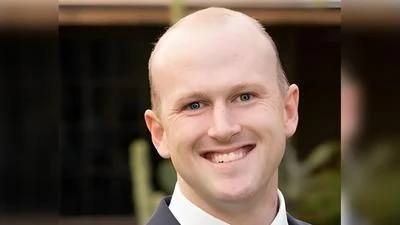Israeli Knesset member Amit Halevi, a staunch advocate for Israel’s security and sovereignty, co-founded the Jewish Statesmanship Center to prepare future leaders in Jewish culture and governance. As a member of the Knesset’s Foreign Affairs and Security Committee, Halevi is involved in Israel’s ongoing war against Hamas, and is a proponent of the Israel Defense Forces’ mission to protect Jewish lands.
In the early days of the current war, Halevi published a series of articles titled “Five Things You Must Know to Win the War.” In the articles, he emphasizes that the first and most critical step is identifying what he says is “the true enemy.” He says this is “an ideology that calls not only for the destruction of Israel but for global domination through barbaric methods.”
Halevi warns that the ideology is deeply rooted in the Muslim Brotherhood, as well as the Shia doctrine led by Iran’s Ayatollah regime. “It doesn’t matter if it’s Shia or Sunni—both are radical regimes that seek to implement Sharia law worldwide.”
In Halevi’s view, the real threat is not Iran’s nuclear program but the regime itself. He argues that removing the regime should be “the first mission of the Trump administration” in order to “liberate the Iranian people.” He characterizes Iran’s proxy forces in Lebanon, Iraq, Yemen, and even Europe and the U.S. as branches of a dangerous tree. “We need to cut the root, which is the regime itself,” he says.
For the mission, Halevi outlines five steps. “First, we need to bring back strong economic sanctions—real sanctions,” he insists. “Second, we must enforce political isolation,” he says, including from Russia and China. “Even they don’t truly want this regime to thrive,” he says.
His third step involves military operations “not just in support of Israel but by the United States as the leader of the Free World.”
The fourth step, according to Halevi, is working with Iran’s neighboring countries, particularly Saudi Arabia and Azerbaijan, to facilitate the Ayatollah regime’s collapse. The final and most important step is empowering the Iranian opposition. “The majority of the Iranian people want to be free,” he says. Halevi believes the U.S. had previous initiatives to support Iranian dissidents but failed to follow through and says, “The Pentagon must revive these efforts.”
Halevi compares this battle against Iran to the Cold War struggle against the Soviet Union. “Reagan called the USSR the Evil Empire—that’s exactly what Iran is today,” he says. He believes the Abraham Accords are a crucial part of reshaping the Middle East, but that peace cannot be achieved until Iran’s influence is eliminated. “Expanding the Abraham Accords is the future of the Middle East,” he says, and that “President Trump must lead that future.”
Halevi also warns against Qatar’s role in fostering anti-Israel ideology. He argues that many Western nations underestimate Qatar’s ideological alignment with Iran. “They wear a business-friendly mask, but at their core, they share the same extremist agenda.”
Halevi especially argues for a larger role by the U.S. and other Western powers. He points to Iran’s recent missile attack on Israel as an example. “Those missiles are not just aimed at Tel Aviv and Jerusalem,” he says. “They are intended for Washington, London, and Paris as well.”
He credits the Abraham Accords with initiating a revolutionary shift in Middle Eastern diplomacy. “For the first time, a political agreement is based not just on trade and tourism, but on shared values and religious heritage,” he says. He believes the accords recognize Israel’s biblical and historical legitimacy, countering radical Islamist narratives. “The Muslim world is at a crossroads—either embrace theocracy or adopt the true biblical values of national identity and coexistence,” he says.
“If the Trump administration has the courage to prioritize ideology over weapons and strengthen biblical values over extremism, we can reshape the world,” he says.









